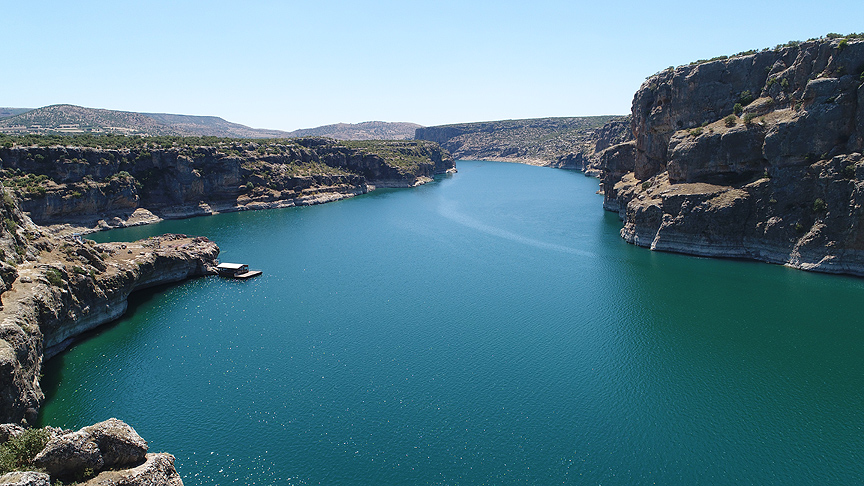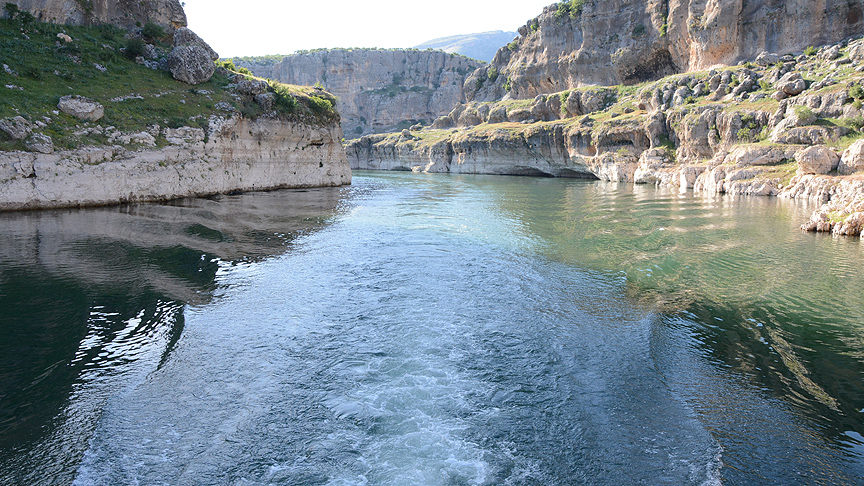The Euphrates River is one of West Asia's longest and historically vital waterways for humanity. It originates in Turkish territory and flows into the Persian Gulf, providing water to multiple countries.
Geographical Features and Route
The Euphrates River is formed by the confluence of the Murat and Karasu Rivers. The Murat River, one of the main branches, originates in Bingöl and passes between the sub-districts of Çapakçur and Zikti, in front of the towns of Palu and Pertek. The Karasu River, the other important branch, emerges from Yeniköy in the Tercan district. These two branches merge near Keban Mine and take the name Euphrates River.
Within Turkish borders, the river passes through İzoli-Çüngüş, Gerger, and the Bucak sub-district of Siverek, then proceeds from Birecik towards Meskene and Ane. It is approximately 1,800 kilometers long. The Euphrates and Tigris rivers merge in the El-Qurna district of Basra after passing through Iraqi territory, then flow into the Persian Gulf.

Euphrates River (AA)
Historical and Cultural Significance
The Mesopotamian region, irrigated by the Euphrates River, hosted the first great civilizations in human history. Sumerian, Babylonian, and Assyrian civilizations emerged in these fertile lands. The region was the scene of the earliest settlements, the first agriculture, and the invention of writing. It is also the geography where three great Abrahamic religions—Judaism, Christianity, and Islam—originated. Therefore, the Middle East and the area around the Euphrates River have directly influenced world history and culture.
The region between the Euphrates and Tigris rivers, which the ancient Greeks called Mesopotamia and the Arabs called al-Jazira, has held great political and economic importance throughout history. With its fertile plains and mineral deposits (gold, silver, copper, iron, lead), it has been a source of wealth. Its location as an intercontinental passage point and the passage of trade routes through it have made the region an important commercial center. Due to its strategic position, it has historically been a crossroads and battleground for major power centers (Persian, Roman, and Egyptian empires).
Economic Use and Infrastructure
In the past, many bridges were built over the Euphrates River and its tributaries. Especially from the second half of the 19th century onwards, road and bridge construction efforts intensified, and numerous bridges were commissioned during the reign of Sultan Abdülhamid II. While river waters, when clean, were used for drinking, they were primarily utilized for irrigating agricultural lands.
The most significant commercial activity on the rivers was transportation; especially in the Sanjak of Diyarbekir, transport was carried out via rafts (kelek). It is known that transportation activities continued on the Tigris in the second half of the 19th century, providing significant revenue for the state.

Euphrates River (AA)
Current Issues and Water Sharing
After the Republican era, especially in the Middle East, the issue of "water sharing" has become a significant source of dispute. The Atatürk Dam, built by Türkiye as part of the Southeastern Anatolia Project (GAP), has led to tensions with neighboring countries like Syria and Iraq regarding water usage.
While Syria considers the Euphrates River an international river, Türkiye has adopted the approach of registering these waters as "transboundary waters." Türkiye is in an advantageous position regarding the sharing of water and other resources, which has not yet been definitively determined under international law.


